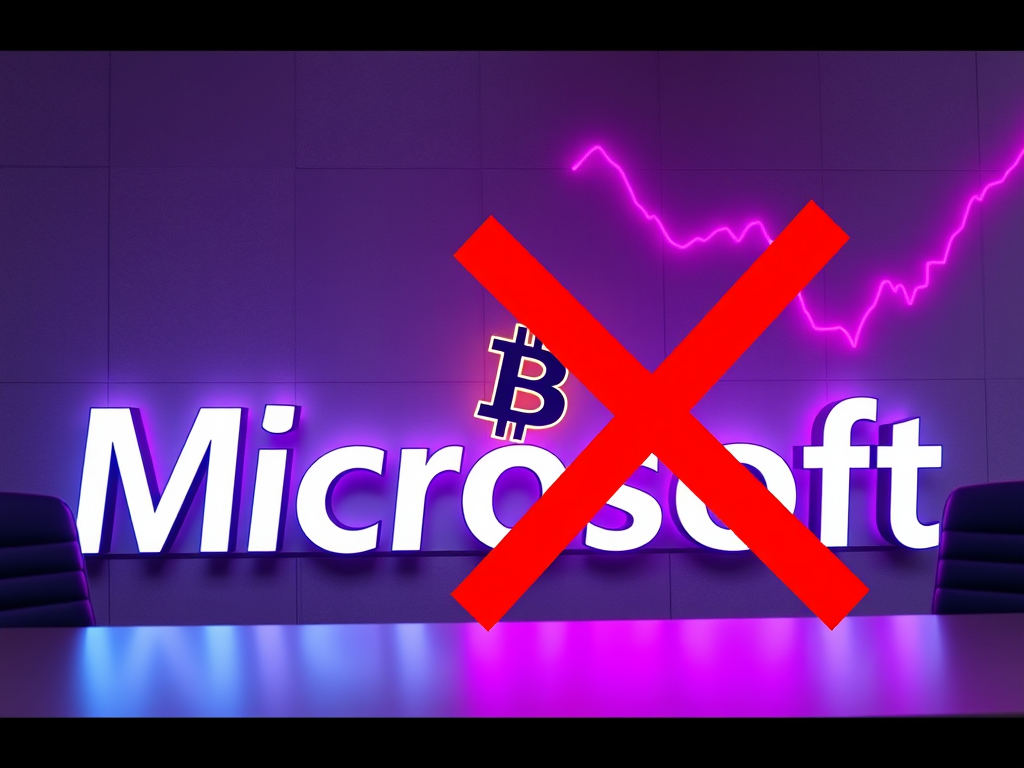Key Points
- Microsoft shareholders decisively voted against adding Bitcoin to the company’s balance sheet, following the board’s recommendation that cited concerns over cryptocurrency volatility and investment stability.
- The proposal, presented by the National Center for Public Policy Research (NCPPR), suggested allocating 1-5% of Microsoft’s profits to Bitcoin investments, framing it as a strategic move to capture the “next technology wave.”
Proposal Details and Rationale
The NCPPR, a Washington D.C.-based pro-free-market think tank, presented their case during Microsoft’s annual meeting on December 10, 2024. Their proposal centered on corporate responsibility and shareholder value enhancement through profit diversification. A pre-recorded video presentation argued that Microsoft “can’t afford to miss the next technology wave,” positioning Bitcoin as that wave. The think tank recommended allocating between 1-5% of the company’s profits to Bitcoin purchases, acknowledging the cryptocurrency’s volatility while warning against completely ignoring it.
Board Opposition and Historical Context
Microsoft’s board formally opposed the resolution through a 14A filing with the SEC, deeming it “unnecessary” and emphasizing their existing careful consideration of investment options. The company’s history with cryptocurrency has been cautious – while briefly accepting Bitcoin as payment in 2014, they suspended this option in 2016 due to low usage and regulatory concerns. This conservative approach aligns with Microsoft co-founder Bill Gates’ skeptical stance on cryptocurrencies.
Market Impact and Broader Context
The decision came amid broader cryptocurrency market fluctuations, with Bitcoin experiencing a 3% decline over 24 hours. The global cryptocurrency market cap saw a nearly 5% reduction, settling at $3.73 trillion according to CoinGecko data. While the NCPPR’s proposal referenced successful Bitcoin adoptions by companies like MicroStrategy and BlackRock (Microsoft’s second-largest shareholder), Microsoft’s board maintained their position that their existing treasury management processes adequately serve shareholder interests.















